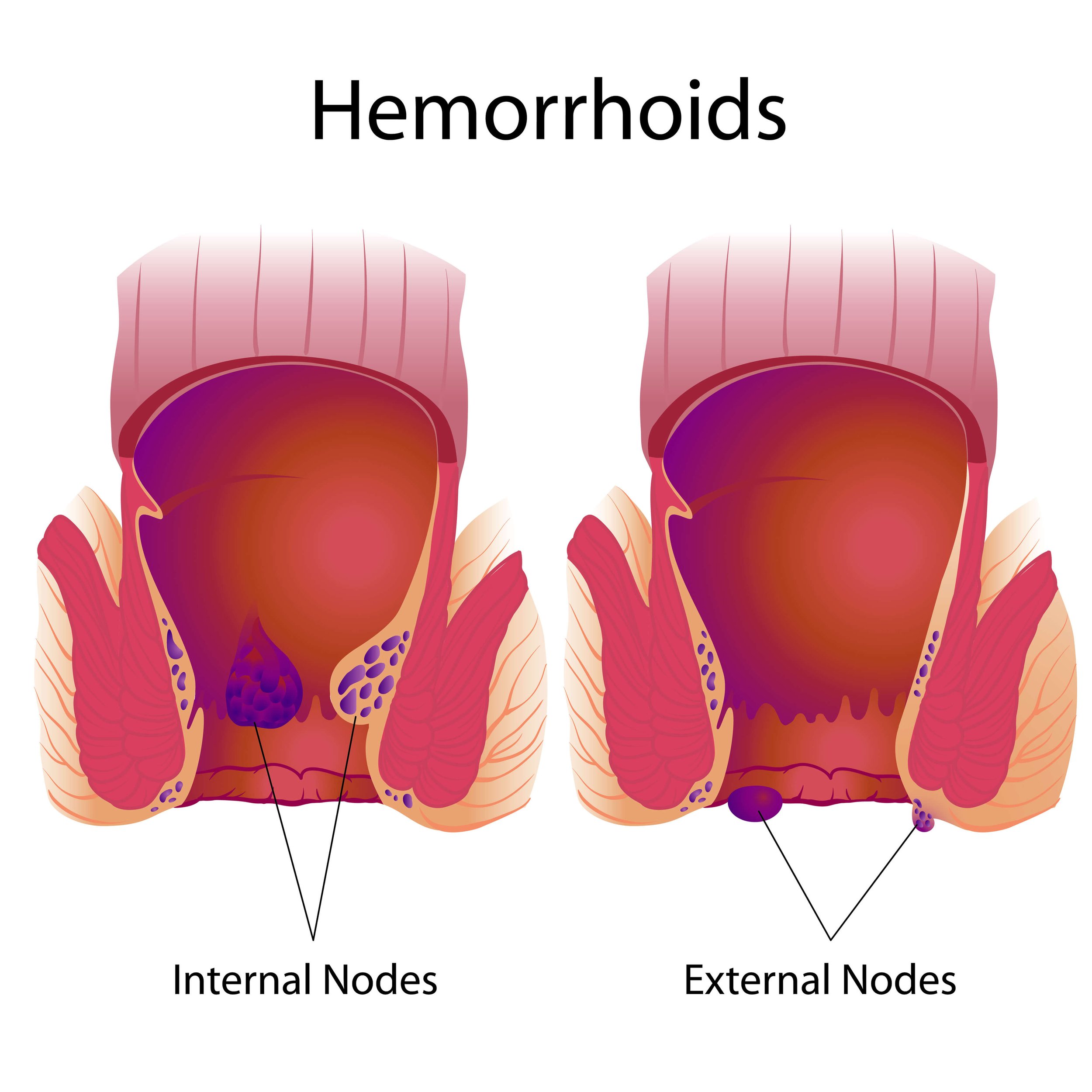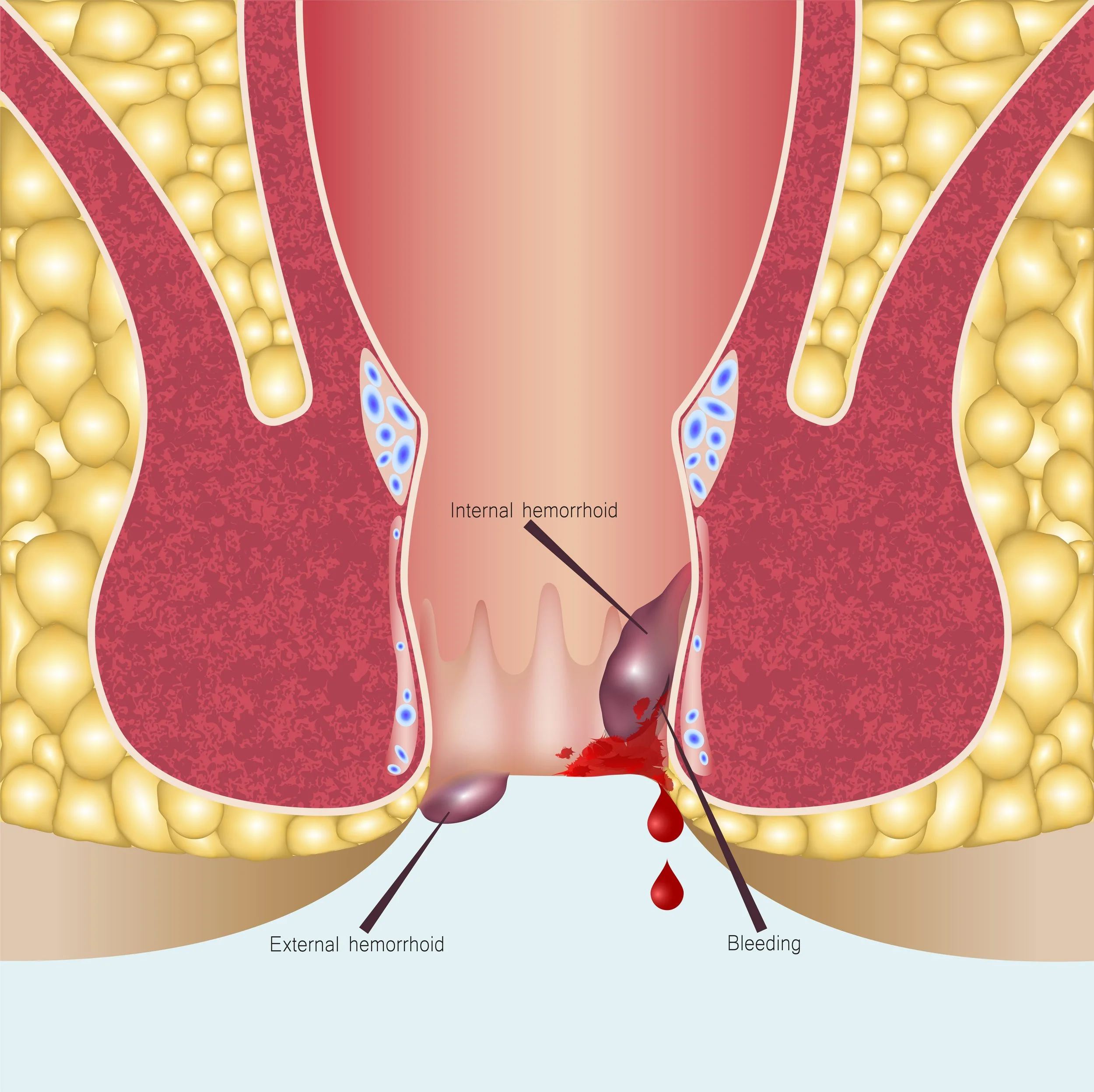
Hemorrhoids
What are hemorrhoids?
Hemorrhoids are essentially veins that cushion and protect the anal canal from damage and irritation during bowel movements. They become a problem when they become swollen, inflamed, or develop outside the anal canal, causing uncomfortable symptoms such as itching, bleeding, and pain.
Hemorrhoids are a common ailment that many individuals experience. Some statistics indicate that about 50% of people will develop hemorrhoids at some point in their lives.
There are two types of hemorrhoids
Internal hemorrhoids
Internal hemorrhoids are a common issue that affects many people. They occur when the veins in the lower rectum and anus swell and become inflamed.
Unlike external hemorrhoids, which can be seen and felt outside of the anal opening, internal hemorrhoids are located inside the rectum and can't be seen or felt.
This can make them difficult to diagnose. Symptoms include:
Bleeding during bowel movements
Discomfort during bathroom trips
External hemorrhoids
External hemorrhoids are a common condition that affects millions of people around the world.
These are swollen veins located around the anus that form when there is an increase in pressure in the lower rectum. They can be caused by a variety of factors such as straining during bowel movements, obesity, and pregnancy.
People who suffer from external hemorrhoids may experience discomfort, pain, and itching. Fortunately, there are numerous treatment options available to manage this condition, including warm baths, over-the-counter creams and ointments, and surgical procedures. Symptoms include:
Pain, itching, and bleeding during bowel movements
Other symptoms may include swelling, inflammation, and a feeling of discomfort or pressure in the anal area.
What causes hemorrhoids?
Straining during bowel movements due to a low fiber diet
Sitting for extended periods of time
Family history of the condition
Pregnancy
Obesity

How are hemorrhoids diagnosed?
Physical examination
A comprehensive assessment is conducted to examine the anus and rectum, meticulously inspecting for the presence of swollen blood vessels, which serve as indicators of hemorrhoids.
Digital rectum examination (DRE)
As part of this procedure, your healthcare provider gently introduces a lubricated, gloved finger into your rectum to closely evaluate and identify any potential issues.
Anoscopy
This method involves the insertion of a hollow, illuminated tube into the anus, granting a clear view of internal hemorrhoids.
Do hemorrhoids go away on their own?
Many people wonder if hemorrhoids go away on their own, and the answer is both yes and no. While some cases may resolve without treatment, others may stick around for a while and require medical intervention.
Self care for hemorrhoids
The first step in self-care is ensuring that you maintain good hygiene in and around the anal region. This can involve regularly cleaning the area with warm water and soap, using wet wipes instead of dry toilet paper, and avoiding harsh soaps and fragrances. Secondly, adopting a high-fiber diet and drinking plenty of water can help ease bowel movements and prevent constipation, which can worsen hemorrhoid symptoms. Lastly, incorporating regular exercise and avoiding long periods of sitting or standing can also aid in the prevention and management of hemorrhoids.
Hemorrhoid embolization is a minimally invasive treatment for hemorrhoids.
New advancements in medical technology, however, may offer a better solution: hemorrhoid embolization. This minimally invasive procedure involves injecting microscopic particles into the blood vessels that supply the hemorrhoids, causing them to shrink and disappear over time.



